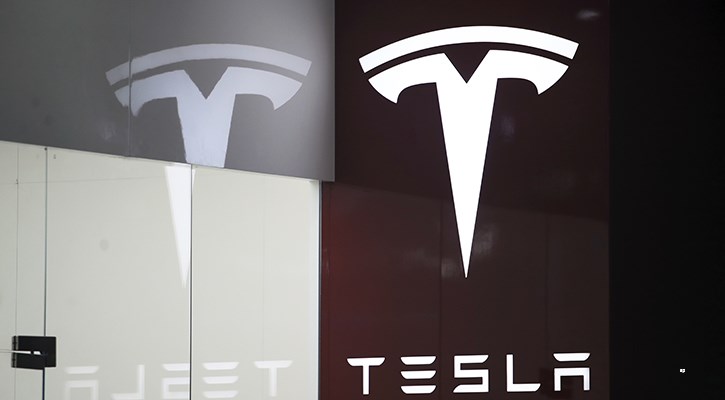
Tesla (TSLA) shares have skyrocketed by more than 1,400% over the past three years, but that doesn't mean its shareholders are entirely happy with the company's management.
There's a growing shareholder revolt around Tesla's handling of employees, diversity, and its board of directors that played out at its most recent company meeting. If it weren't for Elon Musk's control of 22% of the company's stock, four out of five shareholder resolutions would have passed at the annual meeting despite the opposition of Tesla's board, according to Morningstar research. In addition, board member James Murdoch would nearly have lost his seat without Musk's votes.
The level of support for shareholder proposals, and opposition to management's stance, seen at Tesla this year is "rare" says Jackie Cook, Morningstar's director of investment stewardship research, "even under circumstances where an insider doesn't control a large chunk of the vote."
Share price is usually the way that shareholders evaluate a company's direction. And by any standards, Tesla has been a winner. Tesla shares are up 1,467% over the past three years, making it the third-best-performing stock in the Morningstar US Large-Mid Cap Index.

But Tesla has also been a magnet for criticism, even beyond Musk's own unique brand of CEO behavior.
In 2019, Tesla was sanctioned by the National Labor Relations Board for violating labour laws, a ruling that was upheld this year. This month, Tesla was ordered by a federal jury in California to pay $136.9 million to an employee who alleged he was the victim of racist abuse at Tesla's Fremont plant between 2015 and 2016. And at the corporate board level, shareholder activists have criticized the company for board compensation and for length of the director terms.
Shareholder concerns are being voiced through proxy voting, where shareholders vote on proposals regarding company management, key business issues, and who sits on the board of directors.
"Even though the stock has done well, we are thinking about the business today and into the future," says John Streur, CEO for Calvert Research and Management. Calvert sponsored a winning shareholder resolution asking the company to provide more data about its diversity, equity, and inclusion efforts, arguing that increased diversity at Tesla will help ensure that it remains competitive and innovative.
Driss Lembachar, Sustainalytics' manager of transportation and infrastructure research, says the support for the Calvert proposal "reaffirms the growing awareness among Tesla shareholders of potential risks related to the management of its human capital." Sustainalytics has flagged Tesla for having "significant" labour relations risks.
The Calvert shareholder proposal was one of two to gain majority support in 2021, even as Tesla management recommended investors vote against both proposals.
Annual Votes
The other proposal was a nonbinding request to shorten board members' terms to one year. The board of directors represents shareholders. Shareholder governance experts prefer to be able to vote on all directors annually because this ensures that they can hold boards accountable. In contrast, the Tesla board is split into three nearly even groups, and each group of directors comes up for vote each year - so any one director only comes up for vote every three years. This is the typical structure of a so-called "classified board."
It's uncommon to see a pair of shareholder votes get the majority vote in any one year. Not only that, a second proposal, filed by Nia Impact Capital, fell just shy of gaining majority support. This proposal, which garnered 46.4% support, asked Tesla to report on its use of mandatory arbitration, in which employees must submit to arbitration rather than bring their claims to court. The company has been criticised for requiring mandatory arbitration for employee claims of sexual harassment and racial discrimination. In an interview, Nia's CEO Kristin Hull speculated that the proposal may have received less support because shareholders struggled to understand the complicated concept of mandatory arbitration.
The impact of the 227 million Tesla shares owned by Musk masks the deeper level of shareholder dissatisfaction reflected in this year's vote outcomes. To gauge sentiment among the rest of the shareholder base, we subtracted Musk's stake from the vote counts to create a measure of "adjusted" support. While Musk doesn't have the kind of veto power that Mark Zuckerberg wields at Facebook (FB), the Tesla CEO's stake is large enough to swing results in his favor. On this adjusted basis, four out of the five shareholder proposals would have passed.
The trend of shareholder discontent was also voiced in the director elections. Directors James Murdoch, the son of Rupert Murdoch and a former 21st Century Fox executive, and Kimbal Musk, Elon's brother, have faced calls for removal in a broader effort to address compensation for board members.
Without the likely support of the support of Musk, Murdoch would only have squeaked out approval. "Assuming Elon Musk voted all his shares against the shareholder resolutions--the board recommended against all and for the two directors--that's a serious vote of no confidence in the board," says Cook.
This year's results mark a shift from previous years. In 2020, the arbitration proposal received less than two thirds the level of support seen in 2021. From 2018 through 2020, shareholder proposals garnered an average of 22.2% of the vote. In 2021, the five proposals averaged 43.5% of the vote.
It's a similar story for board member votes. During that three-year period, no director earned less than 81% of the vote.
"Shareholder discontent was already evident in the votes last year," says Cook. "Clearly, the board did not address these underlying concerns and lost even more support this year."
Want to Invest in Electric Vehicles?
Get to know the opportunities in our latest industry report here





























